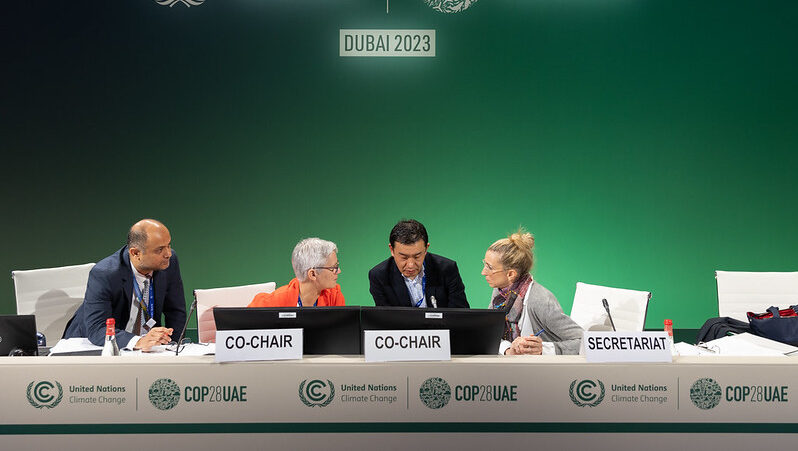Hopes of clinching a deal on carbon trading mechanisms evaporated under the desert sun in Dubai after a tussle between the European Union and the United States.
Countries failed to agree on key rules to trade offsets bilaterally and to kickstart a long-awaited global UN-sanctioned market.
Two opposing, and ultimately irreconcilable, forces fueled tense marathon negotiations regularly stretching into the early hours. Getting the system up and running as quickly as possible, on one hand, while ensuring integrity and transparency on the other.
The US championed what observers described as a “light-touch, no-frills” approach to regulations. That would hand a prominent role to private sector players from the much-criticised voluntary market.
A bloc led by the EU along with African and Latin American states pushed back. They wanted stronger checks and balances and a loosening of confidentiality clauses that could have prevented scrutiny.
The risk many highlighted is that, with a weak framework, the new mechanism could become a dumping ground for junk credits.
After late-night informal negotiations tried to salvage a deal, the presidency put “take it or leave it” text on the table. It contained confidentiality provisions many found unacceptable and was roundly rejected. Negotiators will try again to land a deal at Cop29 next year.
Markets in limbo
The collapse leaves bilateral deals in limbo. Several countries have struck preliminary deals to buy carbon credits from others to meet their emissions targets. Switzerland signed its first such agreement with Peru back in 2020, while Singapore inked a deal with Papua New Guinea on Friday.
Controversial Emirati startup Blue Carbon is also aiming to trade credits under the mechanism from several African and Caribbean nations.
The breakdown in talks also sends rule-makers for a new global carbon market back to the drawing board.
Over 12 months and several meetings, a technical body had drafted rules on methodologies underpinning projects and on the eligibility of removal activities. But countries did not adopt the body’s recommendations.
“Trading carbon credits requires strong environmental and human rights guardrails,” said Gilles Dufrasne, policy lead at Carbon Market Watch. “The text on the table just didn’t provide this. It would have risked reproducing the mistakes of voluntary carbon markets, and by rejecting it, negotiators made the best out of a bad situation.”
Mark Kenber, executive director of the Voluntary Carbon Market Integrity initiative, said the lack of agreement would make it harder to achieve the goals of the Paris Agreement.
“For the market to fully develop in the next two years as the UN and governments have called for, policymakers can draw on the foundational work of the VCMI and IC-VCM to accelerate the transparency and integrity agenda, developing high-integrity VCM and Article 6 markets that deliver the finance that makes ambitious global action possible,” he said in an emailed statement.
Non-market tussle
Nor was significant progress made on non-market approaches to cross-border cooperation that don’t involve an exchange of carbon credits.
Bolivia lamented the lack of attention given to these tools and threatened to impose a moratorium on market mechanisms if that was not rebalanced. Developing countries also fought back against attempts by the European Union to include carbon taxes and levies among non-market activities, observers said.
On this item, there was a procedural outcome “encouraging” countries to continue work on identifying non-market approaches.
